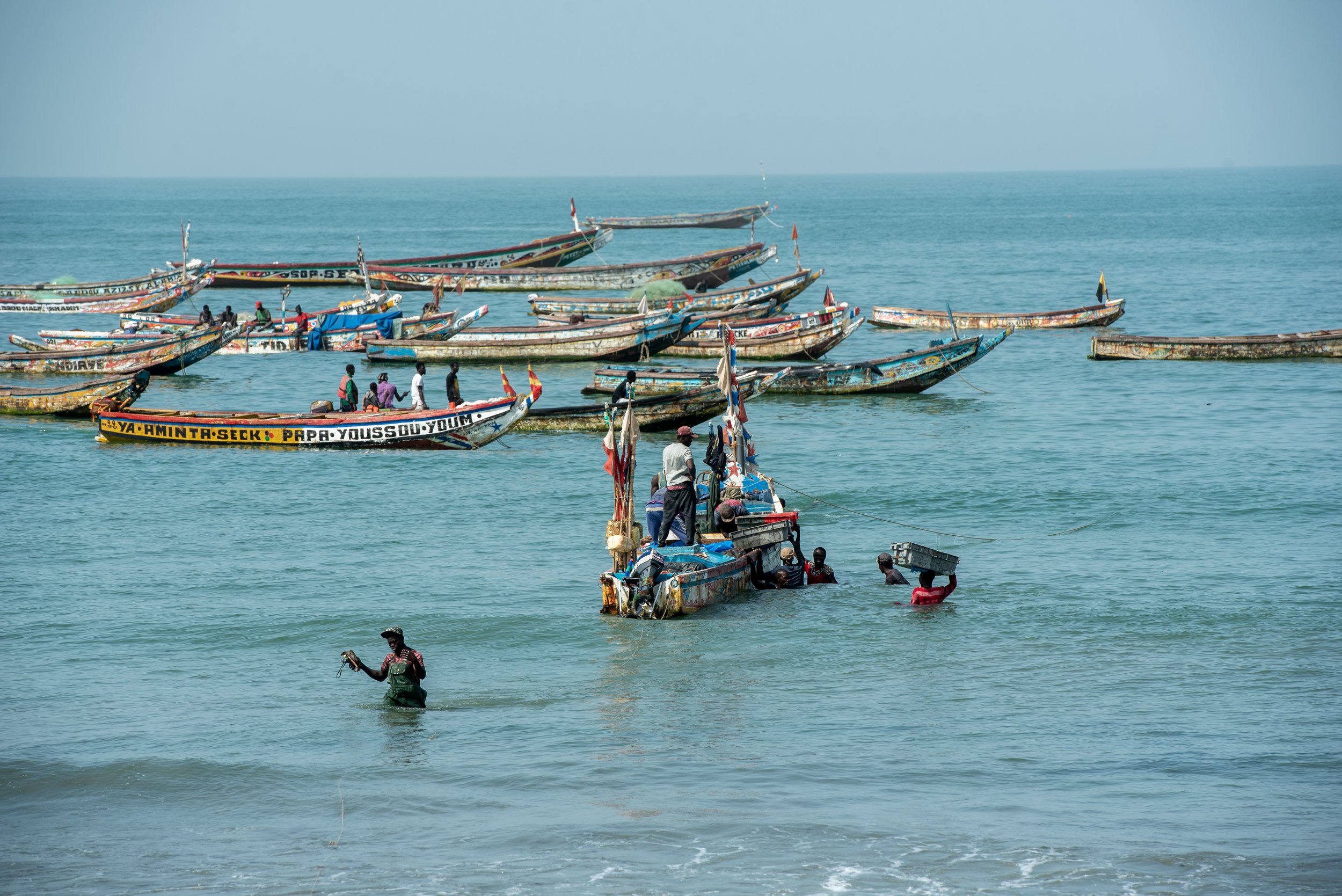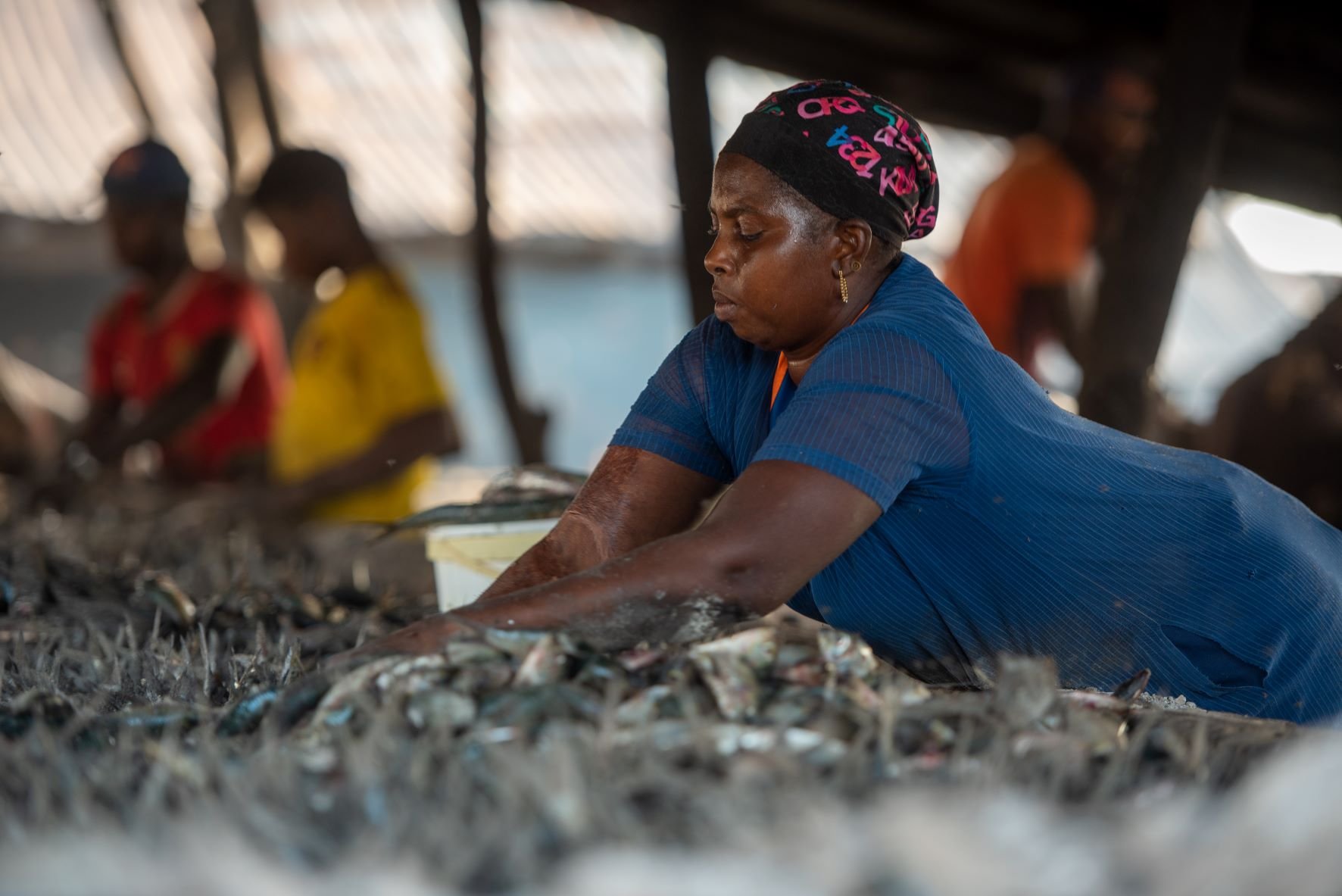The Sustainable Fisheries Partnership Agreement (SFPA) between the EU and Mauritania is an opportunity to implement the “new generation” of agreements announced by the Commission, which should focus on the equitable sharing of benefits, local development, and the well-being of coastal communities that depend on fishing.
Dormant but not dead: Why The Gambia - EU fisheries agreement still matters
Dormant SFPAs should not simply be considered as a pause. Since the framework agreements are still in place, they should be utilised for dialogue on science and sustainable fisheries between the two parties. Dormant agreements can also play a role in the broader regional network of SFPAs as they can help monitor and coordinate research across borders. Finally, these agreements can also continue fostering coherence between EU funding instruments.
Putting fishing communities first: Priorities for negotiating a fair EU-Seychelles Fisheries Agreement
EU-Guinea-Bissau SFPA: progress for the artisanal sector, but European-owned vessels slip through the net
Although the protocol does not allow European fleets to fish for small pelagics because they are overexploited, at least 4 European vessels have reportedly reflagged to Guinea-Bissau and are fishing for these species in the region, jeopardising the region's food security and competing with small-scale fisheries.
The Gambia-EU Sustainable Fisheries Partnership Agreement negotiations: Questions arising
With Senegal’s yellow card, fisheries agreement negotiations between the EU and Senegal are at a standstill. Meanwhile, the EU will negotiate the renewal of its SFPA with The Gambia, whose waters are bordered on both sides by Senegal’s. How would access to the Gambian waters be used by EU fleets, at a time when they may be barred from Senegal waters?
The best way EU Sustainable Fisheries Partnership Agreements contribute to food security is by protecting and promoting artisanal fisheries
The role of artisanal fishing “exclusive” zones in preferential access to resources
This article analyses a series of studies jointly commissioned by CAOPA and CFFA on areas reserved to artisanal fisheries in several African countries. The author sheds light on common challenges for protecting small-scale fishers access and the pressing need for better developing co-management in coastal fisheries, and looks into how can the EU support protection of small-scale fishers’ access to resources.
‘It takes two to tango’ – EU fishing partnerships agreements must become more attractive to partner countries
The Commission’s SFPA evaluation concludes that they are“fit for purpose” and identifies areas for improvement in the implementation of the governance framework. Most of these areas are under the responsibility of the partner country, which suggests that there is a lack of commitment from some partner countries to make these fishing agreements a success.
EU-Senegal fisheries partnership: transparency is essential at all levels
In a contribution sent to the European Commission, co-signed with 8 other civil society and environmental organisations, we highlight the most important points to be taken into account for the renewal of the protocol, to ensure that the fishing agreement has a positive impact for small-scale coastal fishing communities.
Transparency, protected and equitable access to resources: the stakes of the EU-Mauritius agreement for small-scale fisheries
The European Parliament is set to give its consent at the end of May to the new Sustainable Fisheries Partnership Agreement (SFPA) between the EU and Mauritius. This article outlines the challenges that Mauritian artisanal fisheries face and highlights the priorities for sectoral support in the future SFPA protocol to support this sector.
Senegal and Liberia will conduct joint fisheries research to evaluate Liberia fisheries viability. For Liberia ‘carabineros’, this may come too late
Sponsored by the World Bank, as part of their Liberia Sustainable Management of Fisheries project worth 40 million euros, this research campaign will take advantage of the CRODT research vessel, the ITAF DEME, launched in 2021 with the EU-Senegal Sustainable Fisheries Partnership Agreement (SFPA) sectoral support.
Making fish worth its weight in gold: granting better access to markets for women in African artisanal fisheries
How will the EU contribute to support sustainable artisanal fisheries in Africa through its International Partnerships
The new EU regional programming for Africa gives fisheries and oceans greater importance. It also focuses more on small-scale fisheries stakeholders and civil society organisations, which is an opportunity for them to make their voice heard. This article covers a summary of the 2014-2020 and the ongoing 2021-2027 programming, calls for more policy coherence and recommends increased participation of stakeholders for greater and efficient use of the EU funding.
What future for Sustainable Fisheries Partnership Agreements?
In view of the global evaluation of the Sustainable Fisheries Partnership Agreements (SFPAs) that will be carried out by the Commission in 2021, the author highlights the key points which will need to be assessed from the perspective of the impacts on African coastal communities. The author also suggests essential improvements to be made for the future of SFPAs so that they better respond to the needs of these communities.
Sustainable Fisheries Partnership Agreement negotiations between the EU and Mauritania: staying on course
As a new round of negotiations between the EU and Mauritania is expected to start soon, this position paper recalls the demands of the Mauritanian artisanal fisheries sector, highlighting technical conditions, such as the access to octopus to be reserved for local artisanal fishers, the zoning for trawlers to be maintained, and landings of small pelagics to be kept. Governance issues are also key, such as transparency, especially regarding the activities of other foreign fleets; and the urgent need for the SFPA to contribute to regional management for shared stocks.
Making Sustainable Fisheries Partnership Agreements’ evaluations more efficient
BirdLife Europe and Central Asia, CFFA and WWF publish a joint paper with recommendations to improve the process and the content of evaluations by including the assessment of impacts of the EU fleet on ecosystems, of the transparency and non-discrimination clause, the needs of women, the implementation of the social clause and the contribution to SDGs.
Towards greater coherence and budgetary efficiency in future EU sustainable fisheries partnerships
This concept note is part of CFFA's long-term reflection and consultation on the future of the European Union's Sustainable Fisheries Partnership Agreements (SFPAs). We develop some avenues for making SFPAs more effective and sustainable, through a holistic and concerted approach, a financial rebalancing and the implementation of rigorous budgetary tools combined with capacity building.
EU-Liberia SFPA: what should a potential future protocol look like?
10 priorities for the future of Sustainable Fisheries Partnership Agreements
CFFA and six other European and African organisations and their networks publish a joint paper with recommendations to improve the sustainability of EU-African fishing arrangements, including transparency, compliance with European obligations, increased scientific knowledge and the rethinking of the financial support objectives.
Financial compensation, support for development and transparency, the key issues at stake in the negotiation of the EU-Madagascar SFPA
The Government of Madagascar has made it clear that it expects to derive greater benefits from its tuna resources through higher financial compensation. If this compensation is coupled with well-directed sectoral support for local fisheries, this could help develop Madagascar's small-scale fishing sector, which provides thousands of jobs and is essential for food security.




















